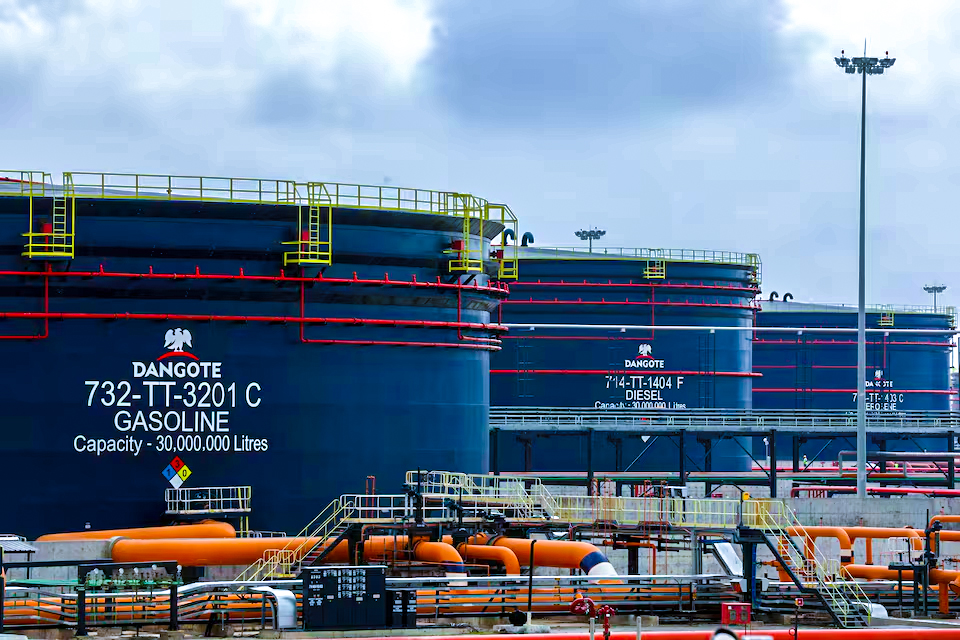NEWS
Nigeria: Dangote's refinery could accelerate the decline of the European sector

The commissioning of Dangote's refinery in Nigeria is likely to disrupt a historic gasoline trade between Europe and Africa, valued at $17 billion a year, putting further pressure on European refineries already threatened by increased competition, according to experts.
The $20 billion refinery, which went into production in January, has a refining capacity of up to 650,000 barrels per day (b/d). At full capacity, it will become the largest in Africa and Europe, a long-awaited milestone in the quest for energy independence by Nigeria, Africa's most populous country and the continent's leading oil producer, but which relies heavily on fuel imports due to insufficient refining capacity.
According to Kpler data, around a third of Europe's gasoline exports, totaling 1.33 million b/d in 2023, were destined for West Africa, mainly Nigeria. The possible loss of this West African market represents a challenge for several European refineries, which cannot adapt their gasoline to the stricter environmental standards of other markets, explained Eugene Lindell, Head of Refined Products at FGE.
According to Kpler analyst Andon Pavlov, between 300,000 and 400,000 b/d of refining capacity in Europe is at risk of closure due to rising global gasoline production. This trend could affect refineries such as Grangemouth in the UK and Wesseling in Germany, which could close earlier than expected this year under the pressure of a gasoline surplus, Pavlov added.
The Dangote refinery, financed by Aliko Dangote, Africa's richest man, is designed to produce up to 53 million liters of gasoline a day, or around 300,000 b/d. The reduction in imports from West Africa will coincide with new environmental regulations in Europe, prompting refineries to reorient towards new markets or modernize their facilities.
However, the modernization of European refineries is hampered by the reluctance of banks to finance fossil fuel projects due to growing environmental pressures.
-

 ANALYSIS11 month ago
ANALYSIS11 month agoThe 3 African countries richest in natural resources
-

 FOCUS ONA1 an ago
FOCUS ONA1 an agoThe 10 largest oil refineries in Africa
-

 NEWS8 month ago
NEWS8 month agoTop 10 des pays africains producteur de l’or : Mali 2-eme, Burkina Faso 3-eme
-

 NEWS2 ans ago
NEWS2 ans agoRanking of oil producers: Here are the Top 10 African countries.
-

 FOCUS ONA8 month ago
FOCUS ONA8 month agoTop 10 oil producers in Africa in 2023
-

 NEWS1 an ago
NEWS1 an agoTop 20 oil producing countries in 2022
-

 NEWS5 month ago
NEWS5 month agoAfrica's 10 largest natural gas production fields.
-

 NEWS7 month ago
NEWS7 month agoIvory Coast: Eni to deploy a cylindrical FPSO and a converted FSO on the Baleine oil field













